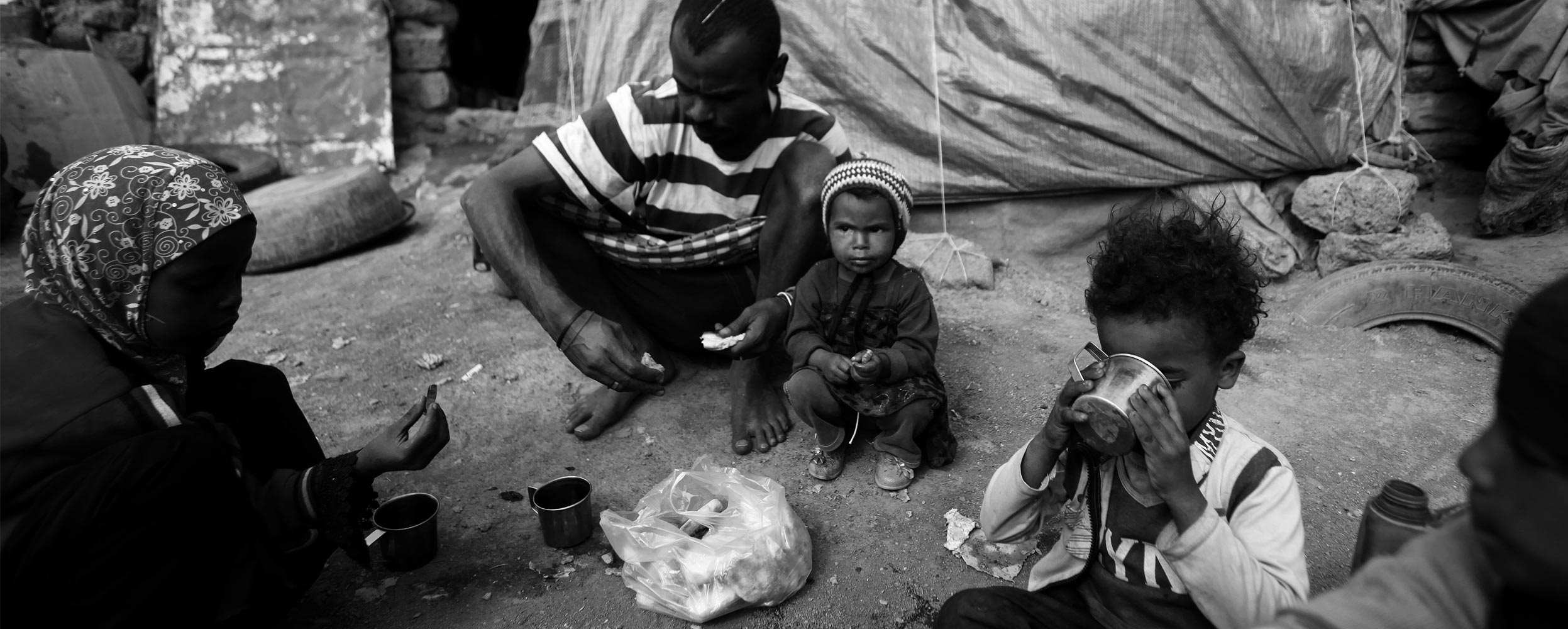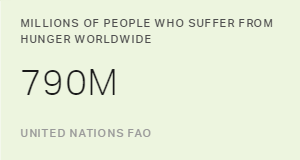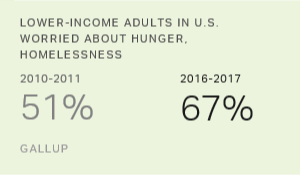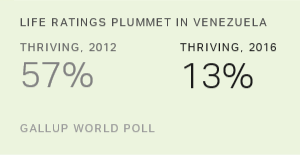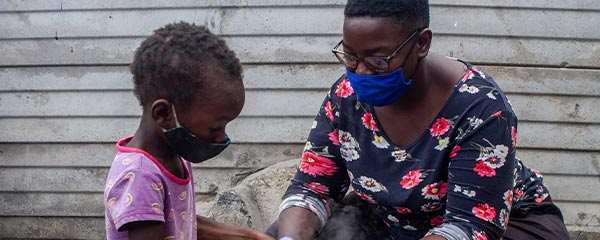It has been two years since the United Nations proposed its Sustainable Development Goals (SDGs), and the clock is ticking to reach the goal of ending hunger by 2030. The poorest and most vulnerable of the 7 billion people on our planet are still being left behind -- and not just in the developing world. No country is exempt from food insecurity. People everywhere -- including millions of children -- lack secure access to sufficient amounts of safe and nutritious food.
Using data collected via the Gallup World Poll in 147 countries between 2014 and 2015, a new working paper by the UNICEF Office of Research-Innocenti provides estimates of food insecurity among households with children younger than age 15 using the Food Insecurity Experience Scale (FIES).* These estimates are the first to quantify the extent of the food insecurity among households with children and ideally will encourage and motivate continued global efforts to address this issue and monitor progress toward the SDGs.
Across the countries surveyed, 41% of children under age 15 live with an adult who faces moderate or severe food insecurity; 19% of them live with an adult who faces severe food insecurity. Using child-weighted data and assuming that children face the same food insecurity as the adult respondent, these estimates translate to approximately 605 million and 260 million children under 15 years of age, respectively. The results also show that food insecurity persists in high- and low-income countries alike.**
Of the 45 high-income countries in our sample, Japan has the lowest food insecurity at 1%, while Uruguay has the highest at 28%. Only 19 countries have levels of food insecurity lower than 10%, meaning that one in 10 children in these countries lack access to safe, sufficient and nutritious foods. The United Kingdom and United States are among the high-income countries that perform the poorest, with approximately one in five children living with a food insecure adult.
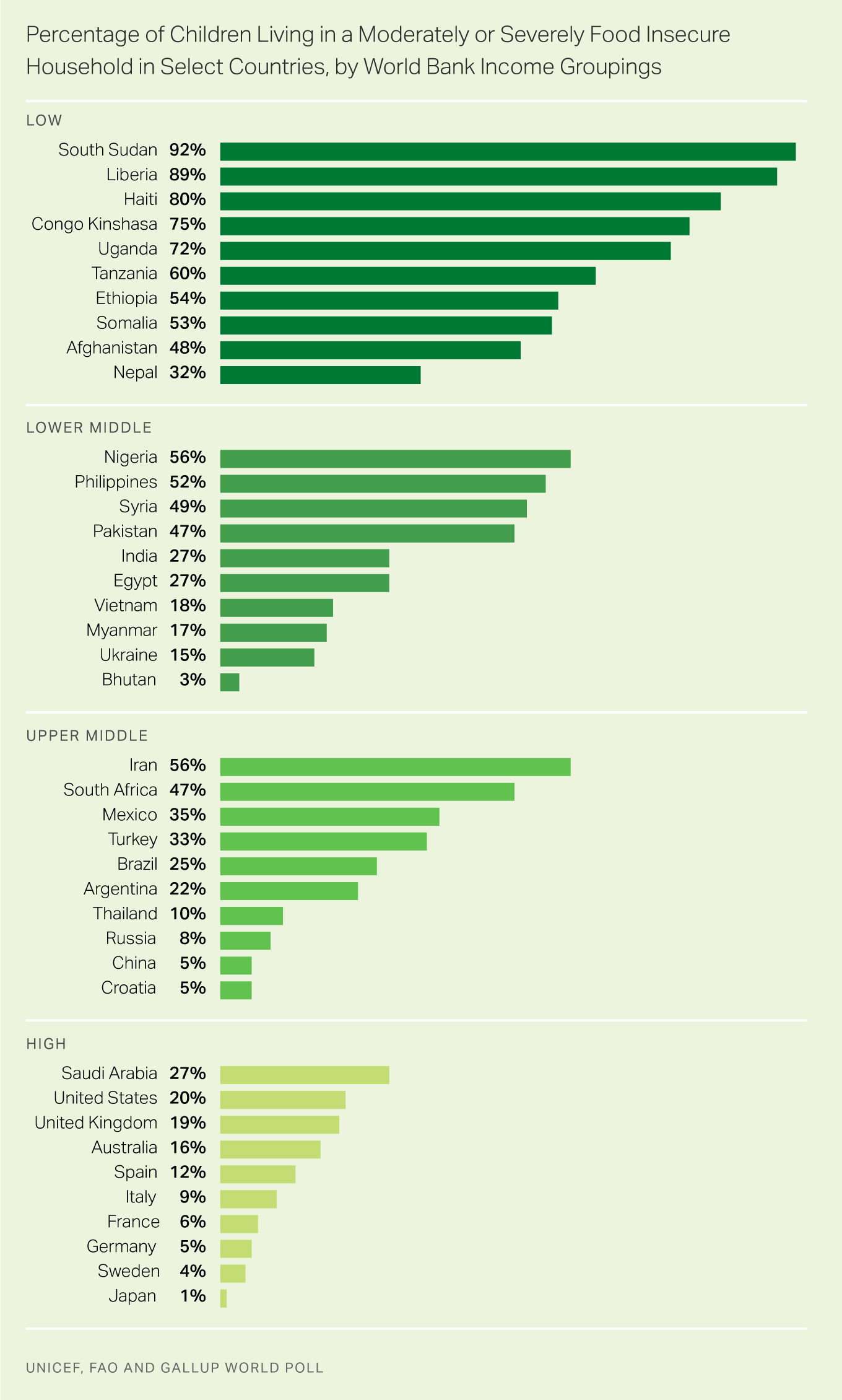
Among the 106 low- and middle-income countries, Bhutan, Croatia and China have the lowest levels of food insecurity, while the highest prevalence of food insecurity is 92% in South Sudan. Of all these countries, 38 have levels of food insecurity higher than 50%, meaning that more than half of all children under 15 in these countries live with a food insecure adult.

Access Global Survey Data
Shape your research on global issues with access to opinions from every corner of the Earth.
As countries' economic development continues to progress, the most vulnerable populations may remain food insecure, thus widening the gap between the food secure and food insecure.
Although there is a growing evidence base on child self-reports of food insecurity, a critical next step will be to determine and define the different domains of child food insecurity across different countries and contexts. Equally important will be to understand and address the dynamics of intra-household allocation, specifically how food insecurity reports differ between children's self-reports and those of guardians and caregivers, whether children are insulated from household food insecurity, and how these relationships may differ by age and sex.
We further need to ensure that food insecurity is not an outcome of unequal economic growth. Because hunger knows no boundaries, continued and sustained efforts are needed across and within the developed and developing worlds to reach zero hunger.
*Food insecurity estimates are based on self-reports of adults 15 years and older and were used to represent the food insecurity status of their entire household. The Food Insecurity Experience Scale was developed by the Voices of the Hungry project. More information is available at https://www.fao.org/in-action/voices-of-the-hungry/fies/en/.
**For further details on methodology, see the full paper, accessible here: https://www.unicef-irc.org/publications/900/.
